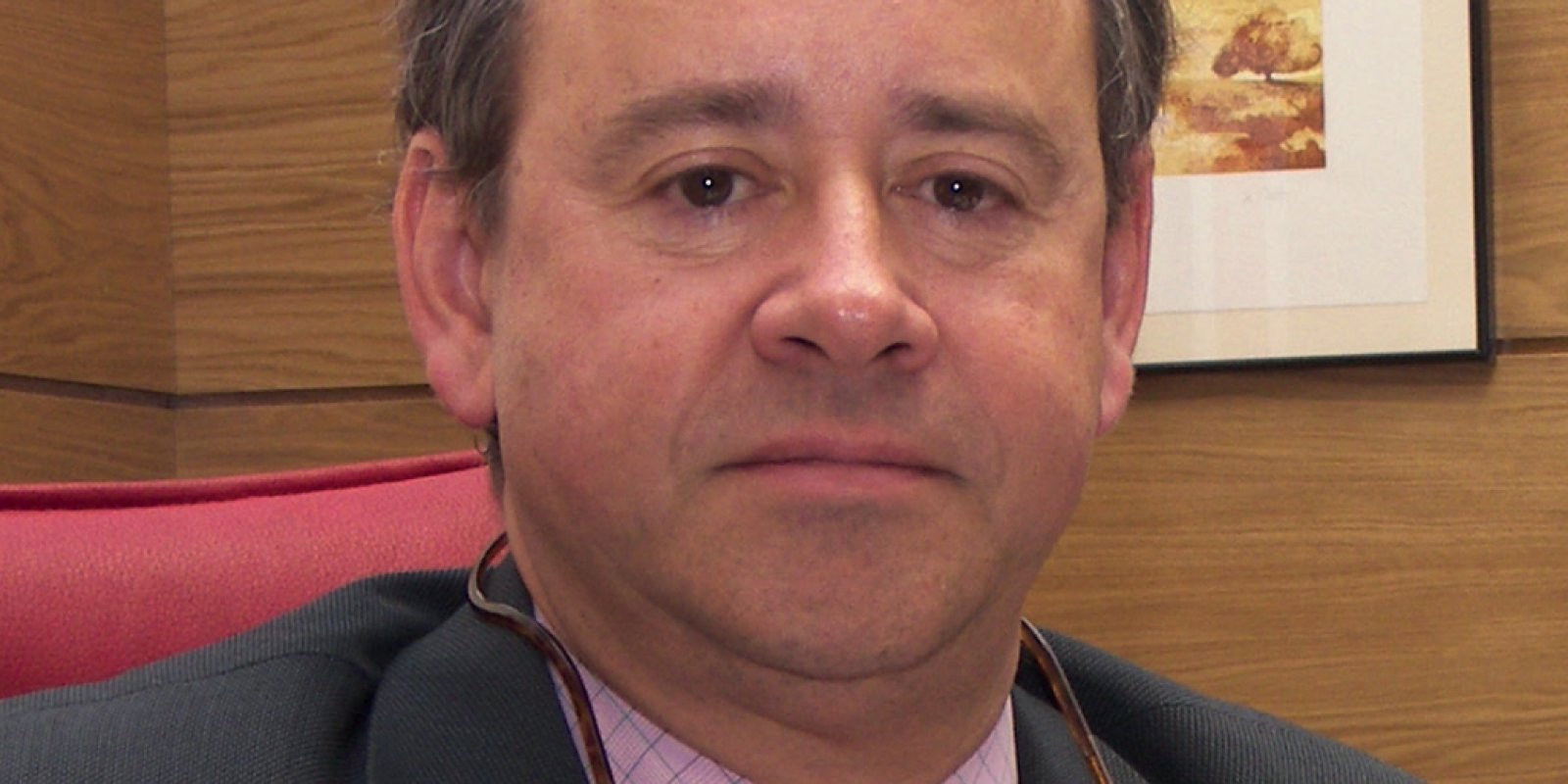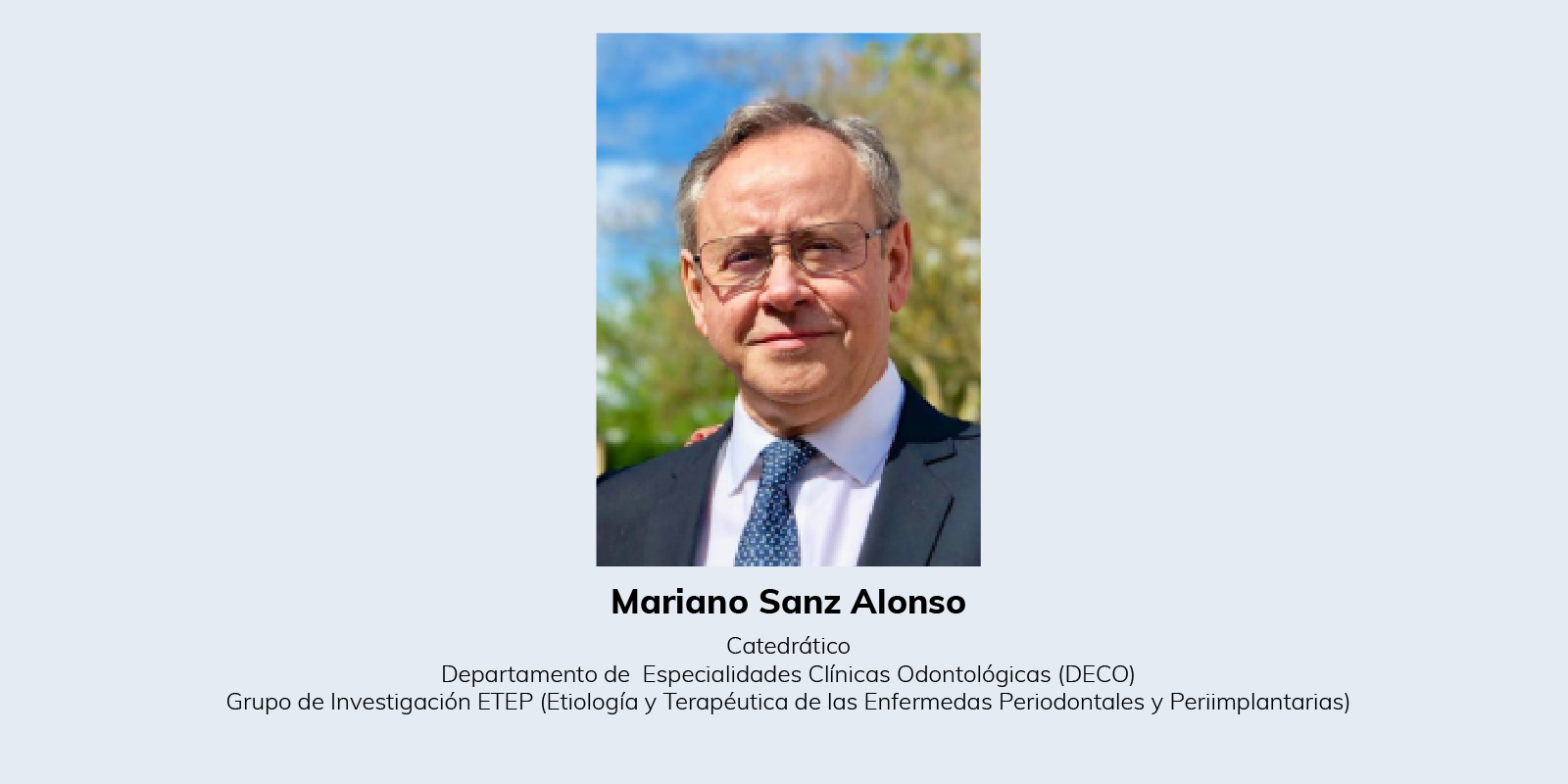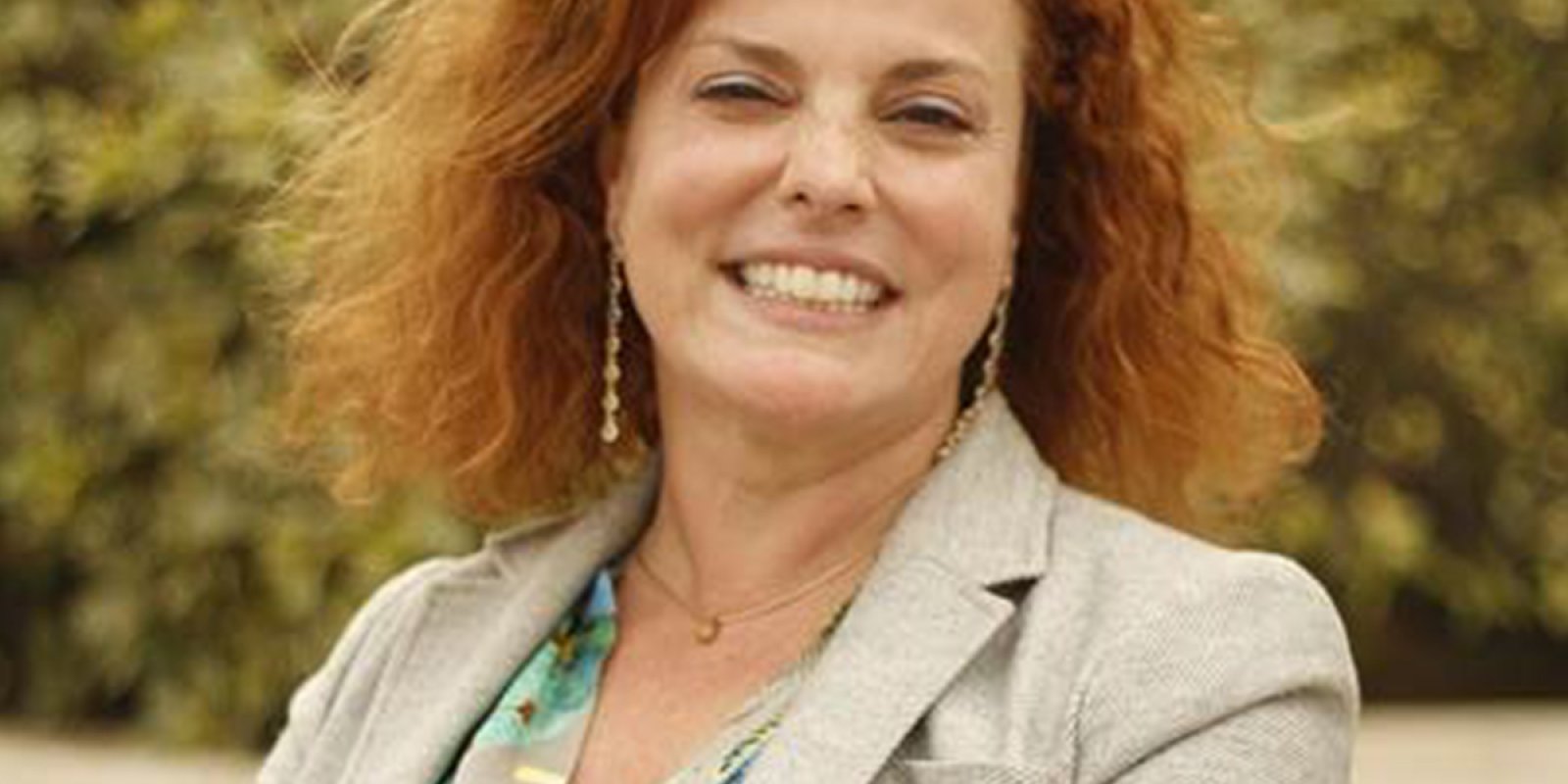DENTAID EXPERTISE
News for dentistry professionals
Dr. Mariano Sanz, Stomotology specialist
06 Sep 2014

Stomotology specialist, Universidad Complutense de Madrid; Expert in Periodontology, University of California at Los Angeles (UCLA); Professor of Periodontology, Universidad Complutense de Madrid. Author of over 200 publications in scientific books and journals. He has taught courses and seminars on periodontology, implants and dental education. Today he will talk to us about cell therapy for periodontal regeneration.
What progress is being made in the field of tissue bioengineering?
There are quite a number of advances being made in this field. Tissue bioengineering combines the use of biomaterials, which are the scaffolds for tissue reconstruction using cells that have the ability to differentiate in order to regenerate the diverse tissue components - with growth or differentiation factors, which stimulate cells in their process of differentiation and synthesis of the different tissues.
In each of these three areas, progress in recent years has been exponential, both in the development of biomaterials which can be customised to replicate the anatomy of the defect to be reconstructed, and in the development of laboratory techniques that allow us to identify and isolate adult stem cells that are able to differentiate different cell lines and even with the ability to re-programme mature cells so that they can transform into cells that have a differentiation capacity similar to embryo cells, such as in the development of recombinant technology in order to industrially produce different growth and differentiation factors.
What new cell therapy applications are being developed?
Cell therapy applications are unlimited, although we need to identify the appropriate vehicles for transporting and applying them (scaffolding biomaterials), and the right biological environment so that they can work properly. Diverse therapeutic models with stem cells from bone marrow have been used in the area of maxillofacial surgery, and our research team is very close to conducting the first clinical trials in human beings on periodontal regeneration, using stem cells from periodontal ligament and from the gums.
Will it be possible to create teeth from stem cells in a matter of years?
It is a possibility, yes, and in fact, several research groups exist whose technologies for this technological development have been patented. Nevertheless, making teeth using cell therapy has the added complexity that the anatomy of each tooth is unique, meaning that directional genes are needed in order to generate the specific tooth for each site.
In terms of prevention, the dynamics of colonisation are being studied. What innovations are being discovered?
More effective antibacterial molecules and safer and more effective antiseptics are increasingly becoming available. However, we must demand that the industry provide scientific evidence for their products, because unlike medicinal products, oral hygiene products are not required to have proven efficacy through clinical trials for their health registration. That is why the market offers a wide range of products with very diverse scientific support, which creates a great deal of confusion among both professionals and consumers. Our knowledge about bacterial dynamics and about intraoral colonisation by bacteria in the form of biofilms allows us to create experimental and clinical models for properly testing these products, so assessing their efficacy is now easily achievable.
What are the weaknesses of oral health in Spanish society?
The biggest weakness involves hygiene habits, which continue to be poor throughout the population. Moreover, the current economic climate is hindering the demand for preventive and dental services, as these services are not public in our country, which will most likely augment oral diseases in the coming years.
What is your opinion about the Research that is being conducted in Spain in the field of periodontology?
Spanish research in this field continues to be significant, and review of impact journals in this area shows that there are a great number of important publications coming from Spanish universities and dental care centres. However, many Spanish university periodontology departments with low scientific output still exist, and we should all work together to improve this data. What is your opinion about the joint relationship between corporate R&D&I departments and universities? I think that this is currently the only way to conduct relevant research studies. Public funds earmarked for research are increasingly scarce, and the requirements for obtaining these funds are sometimes very difficult to meet. Also, our scientific area is closely linked to the profession, and so most of our research is translational research, which is precisely where the interests of companies, investigators and potential beneficiaries (patients) come together.
Where do you think periodontology is headed? How do you imagine it in the coming years?
SEPA recently carried out a Delphi project to evaluate the future of periodontology in depth. The results of this study clearly dictate that periodontology has an important future, as people increasingly have a greater number of teeth at older ages. Similarly, the relationship between periodontology and systemic diseases will increasingly be more significant.
RELATED ARTICLES

13 Dec 2021
Daniele Puzzilli, the dentist of footballer Leonardo Spinazzola
With this pandemic, it has been seen that people pay more attention to their personal care. How important is dentistry in times of COVID-19? The…

09 Jun 2021
Prof. Mariano Sanz, EFP Eminence in Periodontology Award
What does winning the EFP Eminence in Periodontology Award mean to you? It means a lot, as I have been very active in the EFP since it was…

11 Feb 2020
Dr Alejandra Chaparro, Dentist specialising in periodontics and Chair of the IADR Chile
Dr Alejandra Chaparro, the current Chair of the Chilean division of the International Association for Dental Research (IADR), is a dentist who…
Sign up for the DENTAID Expertise newsletter
Sign up for the newsletter